A few days ago, Saeed Morad Abdevali, a world wrestling champion, announced he was currently spending his time cultivating wheat. He had no intention of going back to wrestling, he said, not as a competitor or as a coach or manager, despite the fact that he practices four times a week. “This year I planted wheat and I am busy with my crops,” he told Tasnim News Agency.
Abdevali has an impressive record in Greco-Roman wrestling: a bronze medal at the 2016 Olympics, a gold medal at the 2011 World Championships, two bronze medals at the World Championships, one gold medal and one bronze at the Asian Games and one gold and two bronze medals at the Asian Championships.
Abdevali is not the only Iranian wrestling champion to come to this decision, and to pursue a living off the mat. Others have been forced to become laborers or street vendors to survive.
“I have my own particular character,” Abdevali told Tasnim. “I am not into cronyism and I never mince words. I would definitely behave like that if I became a coach. I know very well that I am no less good than many coaches who have easily got onto the national team.”
Similar words came from Rasoul Khadem, an Olympics and World Championships gold medalist and the former president of Iran’s wrestling federation. In 2018, he called on both the Supreme Leader Ayatollah Khamenei and the Supreme National Security Council to drop the ban on Iranian athletes competing against Israelis. When his call was ignored, he resigned as the president of the wrestling federation and wrote: “If I wanted to preserve my power and myself I would not have resigned.”
So what sets Olympic and world champions like Saeed Abdevali, Arman Alizadeh, Mohsen Madhani and Mehdi Hodaei apart from Alireza Dabir, president of the Iranian Wrestling Federation and a member of Tehran City Council?
Arman Alizadeh, the Farm Laborer
Contrary to what is generally believed, many Iranian athletes who have won international or Asian championships do not live a life of luxury. In fact, if they are not beneficiaries of political privilege, they do not have an easy time making a living.
In March 2021, Iranian media published a video of Arman Alizadeh, a six-time champion at Asian and international wrestling championships, stating that he has to work as a farm laborer. A day later, the Iranian Wrestling Federation claimed that in 2020 Alizadeh enjoyed a contract with the federation worth 70 million tomans (over $16,000), but Alizadeh said he had neither received this sum nor the bonus the sports ministry had promised him. “After 15 years of professional sports I am a laborer,” he said. “This is my situation. Whenever I go to sports officials, they equivocate, and pass me back and forth between them.”
On that occasion, the wrestling federation had no answers. Corruption cases involving its president, Alireza Dabir, remain open, including embezzlement and bribes, but the judiciary continues to ignore them. In 2017, a list of his links to corrupt deals emerged, among them the illegal transfer of 60 billion tomans (over $10 million at the time) to the United States.
On February 3, 2022, Alireza Dabir canceled a match between the Iranian and American wrestling teams that was due to take place on February 12 in Arlington, Texas, after the United States refused to issue visas for him and five others. The US government reportedly came to the decision because Dabir had publicly supported the famous "Death to America" chant used at some rallies and had said that he "didn't like" the United States. It is worth noting that Dabir is a former US Green Card holder.
The cancellation hit the Iranian national wrestling team hard. Regardless, on February 10, Abolfazl Khoda-Gholipour, head of the Basij Sports Organization, went to the federation offices and praised Dabir for his decision.
Mohsen Madhani the Street Peddler
In a video posted on social media in November 2020, Mohsen Madhani, a gold medalist at the 2017 World Junior Wrestling Championships, said he had been forced to sell fruit on a street corner in the city of Andimeshk in Khuzestan province to make ends meet.
Three years after winning the gold medal, instead of being a national hero, Madhani was openly harassed.
“While I was selling fruit on a street corner, agents of the municipality came over and confiscated the goods,” Madhani told the Iranian Students’ News Agency (ISNA). “They told me I did not have a permit and then there was a clash. I lost my mobile phone and they damaged my motorcycle. They broke my scales, too.”
According to Mohsen Madhani, the order to remove his fruit stand had come from Andimeshk’s mayor and governor. “I have been practicing full-time for the past 10 years,” he said. “Andimeshk has no wrestling team so I have to sign contracts with teams in other cities. The contracts pay only between five and 10 million tomans ($197-$394) and I cannot make ends meet with this money.”
“World Champion? Look Where it got you”
In July 2020, Mehdi Hodaei, another wrestling champion, posted a picture of himself on Instagram holding a big hammer. “The fate of a professional athlete is to become a laborer,” the caption read. Neither the Iranian Wrestling Federation nor the Ministry of Sports responded to the post, perhaps because Mehdi Hodaei and Mohsen Madhani are just two of many who have been forced into pursuing manual labor or unskilled jobs because money in Iranian sports is not shared out in an equitable manner.
In July 2016, Iran’s sports community grieved, if only for a few hours, the death of Iraj Khedri, a member of the national basketball team. “Give me my retirement pension because I do not want to be a street peddler,” he had pleaded with the Ministry of Sports and the basketball federation. But he spent the last years of his life selling goods in a corner of Tehran’s Imam Hossein Square.
In July 2020, a video emerged online that showed Soroush Ahmadi working as an unlicensed cab driver. Ahmadi, a Taekwondo athlete, had won the silver medal at the 2019 World Taekwondo Championships. He had ignored offers from neighboring countries to change his nationality and compete for them.
“We are not obliged to pay a salary to all members of national teams,” the president of the National Taekwondo Federation had said.
In 2017, media reported that Mohammad Reza Takhsha, the captain of Iran Futsal Team for Persons with Disabilities, was selling fruits on a roadside in Andimeshk.
In 2016, Omid Setayeshpour, a powerlifting champion in Asian and international competitions, was selling scarves and shawls on a street corner in the city of Qazvin when municipality authorities attacked his stall as had happened to Mohsen Madhani. “They cursed me and took away my stuff,” he said. “I told them I was a world champion and they answered: ‘look where it got you!’”
In 2014, Radio Farda reported that Mohammad Yousef Raisi, former captain and coach of the Iranian national cricket team, was selling gas on a street corner in Nik Shahr in the province of Sistan and Baluchistan.
While some Iranian professional athletes are unable to make ends meet, there are others, like Hojjat Karimi, who are luckier. The supervisor of Iran’s national wrestling teams, he is also a former member of the Revolutionary Guards, a former employee of the National Police Intelligence Unit and an employee of Tehran municipality under Mohammad Bagher Ghalibaf when he was mayor. He runs at least five car-part import-export companies that receive foreign currency at the low official price.
Related Coverage:
Senior Iranian Football Official Resigns to FIFA – Not to Iran
FIFA's Deadline for Iran to Separate Politics from Football
Iranian Judo Federation Banned from International Matches for Four Years
Exiled Iranian Athletes Testify Against Iran at International Sports Court
Foreign Sports Coaches Are Fleeing Iran
The Man Behind Corruption and Embezzlement in Iranian Sports
Iranian Wrestlers May be Ordered to Lose Again to Avoid Facing Israelis
Guards: Don’t Compete with Israelis or We’ll Break Your Legs
visit the accountability section
In this section of Iran Wire, you can contact the officials and launch your campaign for various problems




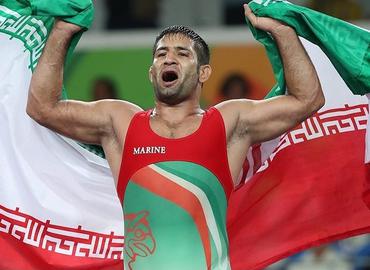
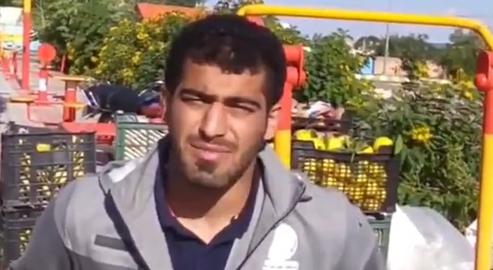
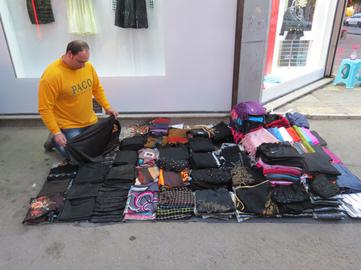
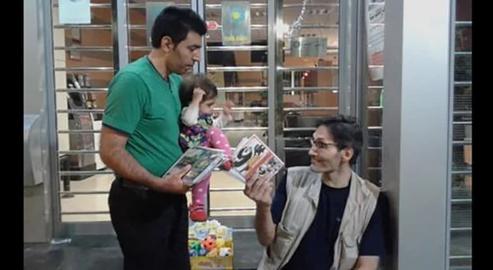







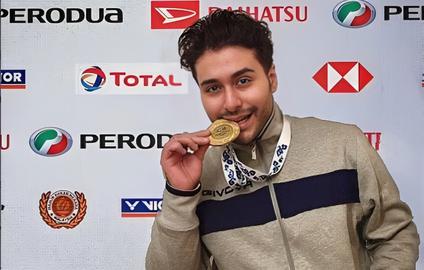
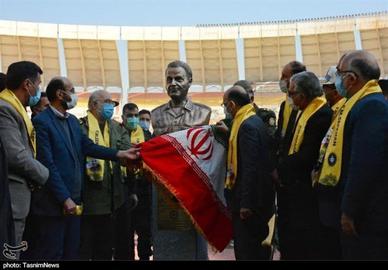
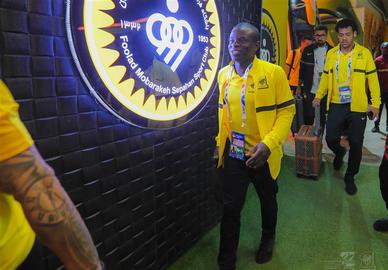





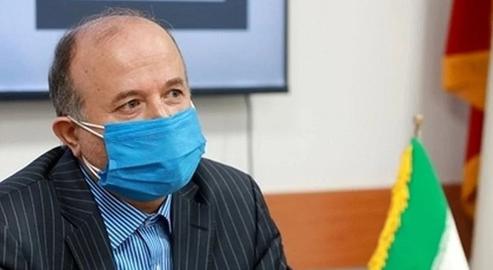
comments